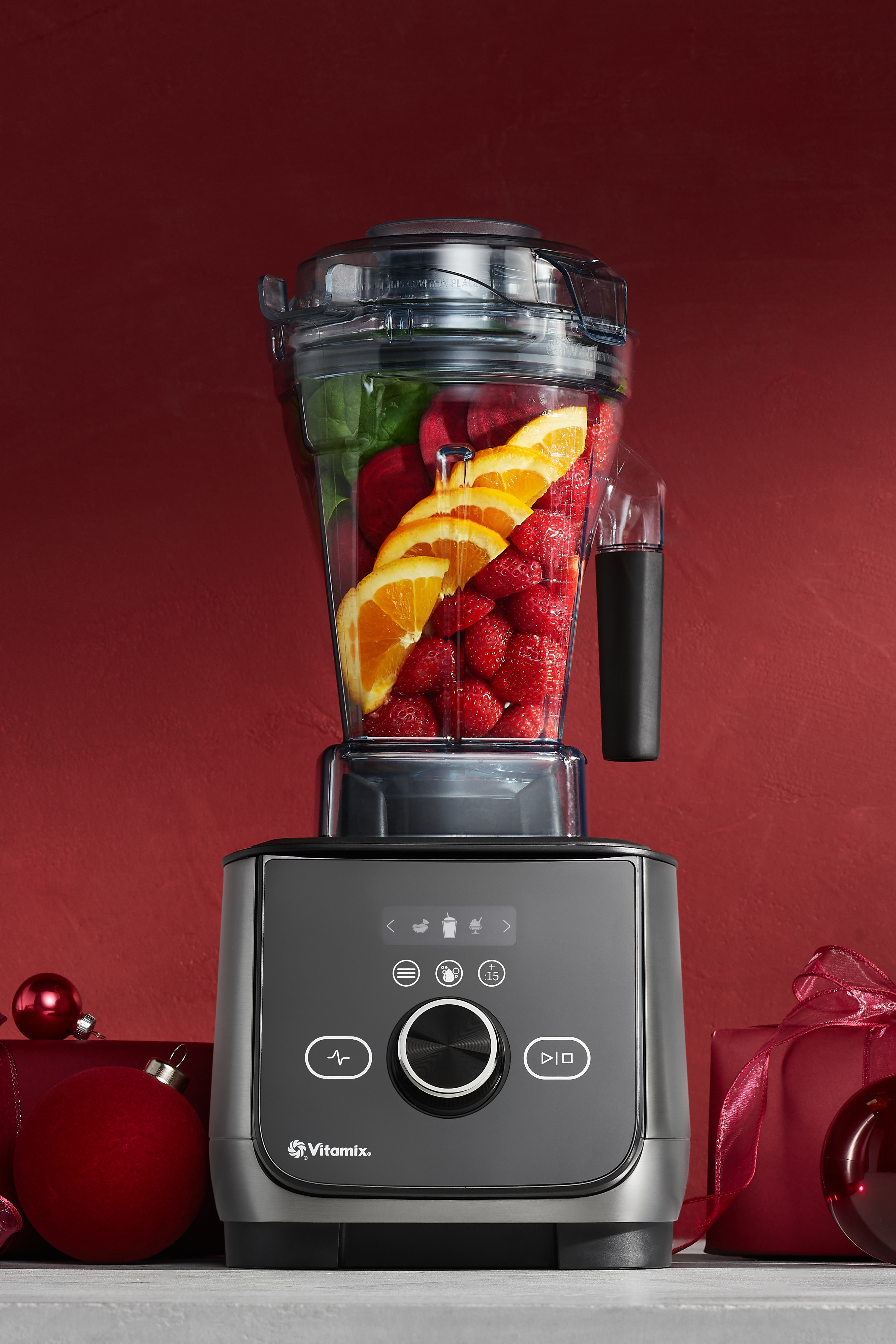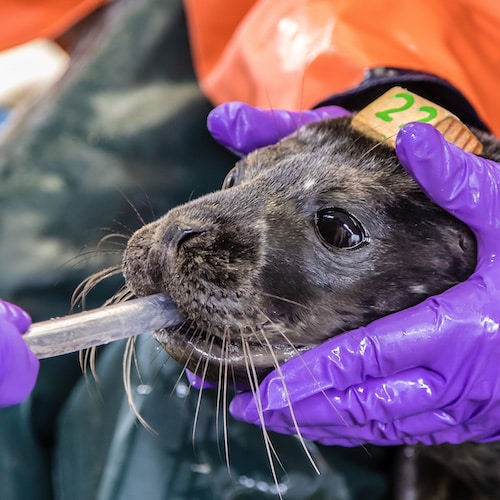While many of us start our day with a blend of fresh greens, fruit, seeds and maybe some almond milk … there’s one California-based hospital that regularly serves up a smooth puree of salmon oil, milk powder and whole, frozen herring to help its patients achieve better health. And the facility makes up to 50 gallons of this mixture—or a variation of it—every day.
Fish-based concoctions are not the latest health craze … they’re seal pup formula. And, during busy season, this formula is blended in Vitamix Commercial machines and can serve more than 100 patients per day at The Marine Mammal Center in Sausalito.
The Marine Mammal Center’s mission is to advance global ocean conservation through marine mammal rescue and rehabilitation, scientific research and education. Sick and injured animals are treated and rehabilitated at the Center’s state-of-the-art veterinary facilities, and cared for until they can be released back to their ocean home. The center, a non-profit organization, relies on more than 1,300 volunteers to help care for its patients.
The Marine Mammal Center has treated 23,000-plus animals since 1975. In any given year, the hospital can care for as many as 1,800 marine mammal patients. California sea lions, Guadalupe fur seals, Pacific harbor seals, northern elephant seals, northern fur seals and Steller sea lions have all made their way to the center. Abandoned, sick or injured seals suffer from malnutrition, illness, entanglement in ocean trash, or injury from sharks or gunshots.
“Things aren’t getting better out there,” said Sophie Guarasci, Animal Husbandry Manager at The Marine Mammal Center.
The number one thing The Marine Mammal Center does for animals is to make sure they get proper nutrition to rehabilitate them and get them back into the wild.
According to Guarasci, it’s critical for malnourished seal pups to get formula with nutrients, electrolytes, plus a fat and calorie content that rival a mother’s milk. A smooth puree made from ingredients like whole, frozen fish, fish oil and milk powder helps get the seals back on track. Often, seal pups also need antibiotics, gastric protectant, or pain medicine; these treatments are incorporated into the formula.
But giving seal pups critical nutrition and medication is not as simple as making herring smoothies. The mixture has to be tube fed to seals up to five times daily—this process involves a syringe, a feeding tube and a large, wild, slippery marine mammal. The formula can’t be too thick or chunky, or else it will get stuck and the animal won’t get the nutrition, or medicine, it needs. That’s where Vitamix Commercial blenders come in … they have the ability to blend whole, frozen fish into a puree so smooth that it can travel from syringe, to tube, to seal pup without issue.
During busy season, volunteers work two shifts, day and night, feeding seal pups. Formula has to be easy to make, regularly, in high volumes. The equipment used to prepare it needs to be able to run for up to two hours at a time, without breaking down.
In other words, preparing mass quantities of seal pup formula also requires a reliable commercial blender.
“We had other blenders and they were constantly breaking down,” said Guarasci. “I would get calls in the middle of the night that the blenders broke, they were overheating, they couldn’t handle the volume and the frozen fish.”
Guarasci, whose job includes overseeing animal feeding and equipment, sought to find a reliable, efficient solution to ensure seal pups would get fed regularly, without issue.
“One of the volunteers in the fish kitchen had a Vitamix at home, and felt that it was super reliable,” said Guarasci.
After some initial research, the organization secured a Vitamix XL—the largest-capacity countertop blender, featuring a powerful motor and 1.5-gallon container.
“We blended whole, frozen fish and it worked beautifully,” said Guarasci.
The organization obtained another Vitamix XL machine to make seal pup formula, and eventually, two more. The large-capacity Vitamix Commercial blenders have reliably blended frozen fish mixtures for years in The Marine Mammal Center fish kitchen, without a single issue.
Guarasci credits the machines for saving time, providing consistent blends, making the volunteers’ jobs easier, and, most importantly, giving her peace of mind that the animals will get fed.
“Vitamix is critical to the survival of many of our patients,” said Guarasci.
For more information on The Marine Mammal Center, visit http://www.marinemammalcenter.org/.



